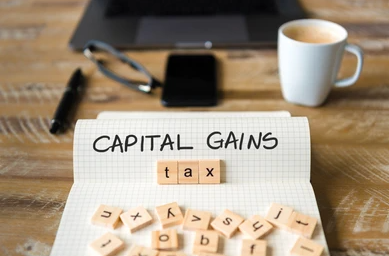10 Mar 2023

As part of the Autumn Statement 2022, the Capital Gains Tax (CGT) annual exempt amount, currently £12,300 for individuals, will decrease sharply to £6,000 from 6th April 2023. From 6th April 2024 it will further decrease to £3,000 at which point it will be frozen thereafter. This means that more people will soon start losing money to CGT unless their portfolios are managed to avoid the tax loss.
The scheduled number of investors impacted by the change in taxation is 570,000 for tax years 2023/24 alone. Although 2022 was a down year in most markets, you may well have gains accumulated from earlier tax years which can be offset against your annual exemption. Unfortunately, any unused annual exemption cannot be carried forward to a future tax year.
What you can do
Anti–Avoidance rules mean that you cannot sell holdings one day and buy back the next to take advantage of the annual exemption. However, there are alternatives to achieve a similar outcome:
- Realise gains before the 6th April 2023.
- Consider transferring assets to spouse/civil partner to make use of each person’s annual CGT exemption. Transfers between spouse and civil partners are exempt from CGT
- Maximise investments into ISA’s and pensions.
ISA's
These turns of the investment screw add to the attractiveness of ISA’s. As a reminder, all ISA’s offer 4 (increasingly) valuable tax benefits:
- Interest earned on Fixed Interest Securities and cash are free of UK Income Tax.
- Dividends are also free of UK Income Tax.
- Capital Gains are free of CGT.
- ISA income and gains do not have to be reported on your Tax return.
The maximum total contribution for ISA’s is £20,000 per Tax year, a figure unchanged since 2017/18 and not due to increase in 2023/24. For Junior ISA’s the maximum is £9,000. There are no carry back provisions – use it or lose it!
While there may be actions to be taken, it is always worth remembering that government policy can change. We will endeavour to keep you updated with changes and how best to act on these.